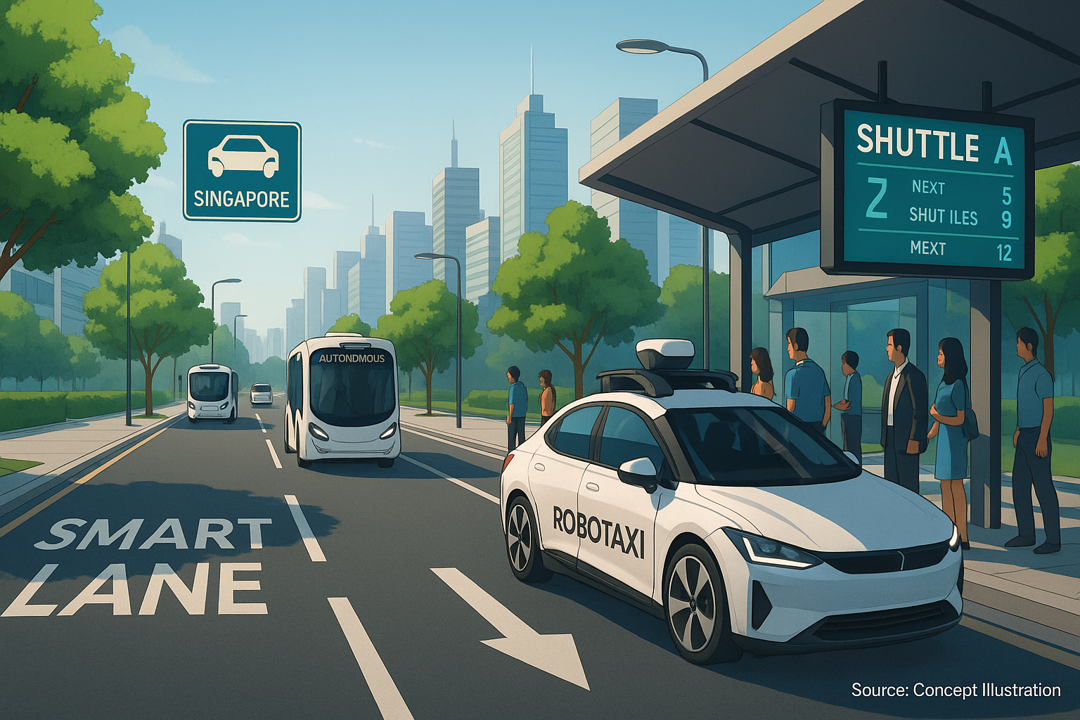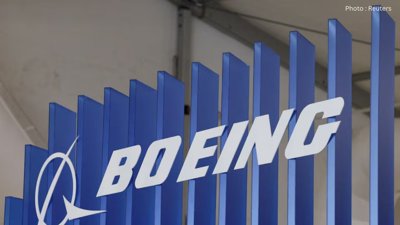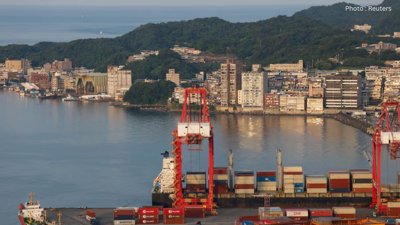
Post by : Shivani
Two Chinese robotaxi firms—WeRide and Pony.ai—have announced partnerships with Singaporean companies to roll out autonomous shuttle services in Singapore, marking a major step in the nation’s smart mobility plans. The Land Transport Authority (LTA) confirmed that these projects are part of Singapore’s broader move into autonomous driving, with operations expected to begin in 2026.
Ride-hailing giant Grab will work with WeRide to operate two shuttle routes in Punggol, using five- and eight-seater autonomous vehicles after test phases validate performance. Meanwhile, Pony.ai ComfortDelGro collaboration is preparing a separate route covering approximately 12 km, pending regulatory approval.
WeRide has already launched robotaxi services in Chinese cities and will apply its expertise to Singapore by testing shuttle routes, safety measures, and passenger experiences. Pony.ai, which runs services in Beijing, Shanghai, Guangzhou, and Shenzhen, is expanding its reach internationally, strengthened by new funding after its Nasdaq listing.
The LTA emphasized that both companies have “a proven track record of deploying automated vehicles overseas across multiple vehicle types, including shuttles and cars.” Earlier this year, Transport Minister Jeffrey Siow underscored Singapore’s commitment to autonomous shuttle route launch initiatives by visiting Chinese companies working in the sector.
Grab-WeRide aims to begin full operations in early 2026, following successful test runs focused on safety, navigation, and user feedback. Pony.ai and ComfortDelGro expect to start sooner, once they secure the necessary approvals. Both projects are expected to boost connectivity in Punggol and nearby districts while serving as testbeds for future robotaxi deployment in Singapore.
Officials stressed that these autonomous shuttle services in Singapore will not replace existing public transport but complement it. The focus is on last-mile solutions—helping commuters travel between homes, MRT stations, and workplaces more conveniently while reducing congestion in underserved zones.
Yet, regulatory approval remains a hurdle. For example, Pony.ai’s service cannot launch until it receives LTA authorization for full route operation. Singapore’s autonomous driving regulation framework is designed to balance safety with innovation, requiring rigorous testing and localized control adjustments before public deployment.
These developments reflect Singapore’s rising investment in smart mobility infrastructure and autonomous vehicle technology. The confidence shown in robotaxi firms’ Singapore expansions highlights the government’s belief that self-driving shuttles can solve urban transit challenges efficiently and sustainably.
As riders and policymakers monitor progress, questions around technology reliability, safety standards, and long-term integration with existing transit remain central. Still, the move signals a new era for Singapore’s transport ecosystem.
For more updates on autonomous transport, EVs, AVs, and global smart mobility policies, visit Armust News, where industry trends and breakthrough projects are regularly covered.
#Robotaxi #AutonomousShuttle #SingaporeMobility #WeRide #Ponyai #ComfortDelGro #SmartTransport #AVTech










Advances in Aerospace Technology and Commercial Aviation Recovery
Insights into breakthrough aerospace technologies and commercial aviation’s recovery amid 2025 chall

Defense Modernization and Strategic Spending Trends
Explore key trends in global defense modernization and strategic military spending shaping 2025 secu

Tens of Thousands Protest in Serbia on Anniversary of Deadly Roof Collapse
Tens of thousands in Novi Sad mark a year since a deadly station roof collapse that killed 16, prote

Canada PM Carney Apologizes to Trump Over Controversial Reagan Anti-Tariff Ad
Canadian PM Mark Carney apologized to President Trump over an Ontario anti-tariff ad quoting Reagan,

The ad that stirred a hornets nest, and made Canadian PM Carney say sorry to Trump
Canadian PM Mark Carney apologizes to US President Trump after a tariff-related ad causes diplomatic

Bengaluru-Mumbai Superfast Train Approved After 30-Year Wait
Railways approves new superfast train connecting Bengaluru and Mumbai, ending a 30-year demand, easi